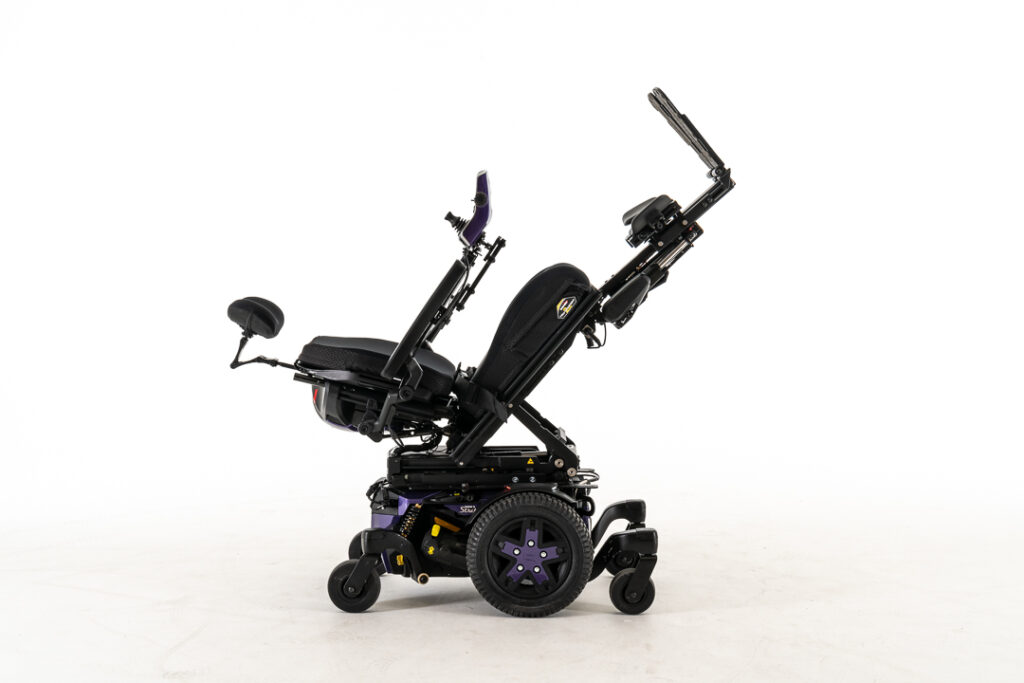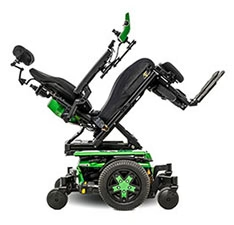This course will examine the clinical decision-making process and algorithmic approach to mobility assistive equipment trial and recommendation. This course will also serve as a review of preventative therapeutic use of powered seating features that allow end user increased independence not only in daily activities but also in the importance of medical management when caregiver and therapy resources may be limited.
The use of powered features will be reviewed in regard to management of frequent comorbidities and medical conditions such as: orthostatic hypotension, edema, contracture/tone management, pressure injury prevention, and the application of positioning components that can aid in decreased the complications of skeletal deformities over time.

Many times, end users may be overlooked for their potential of meeting power wheelchair criteria that could provide them increased functional independence and control within their environments and to help be a part of preventing further medical complications. It is known that over 60,000 people in the United States die each year form pressure injuries alone and we know that utilization of pressure re-distribution for those lacking sensation and independent mobility can reduce this by giving the user control of their repositioning.
Saturday, October 18, 2025
10:00 am – 11:00 am
Broward County Convention Center, Hall A
Room 201AB (Located outside just above the Expo Hall)
1950 Eisenhower Blvd.
Fort Lauderdale, FL 33316
Credits: 0.1CEU / 1.0CEC / 1hr
Level: Beginner / Review
Registration:
This complimentary course requires registration at Abilities Expo in addition to registration with Quantum Rehab. Space is limited and seats are reserved on a first come, first serve basis.
Prerequisites:
None
Target Audience:
Licensed/Certified Medical Professional (i.e. PT, OT), Rehab Professional (ATP, SMS, CRTS)
Learning Objectives:
At the conclusion of the course the participant will be able to:
- Discuss the significance of 3 power seating features and positioning principles in the evaluation and recommendation process.
- Describe 2 medical conditions that may require intervention with mobility assistive equipment.
- Identify 2 power seating functions recalling what medical management/prevention application it serves.
Agenda:
Hour 1
- Discussion on common medical complications from those experiencing a mobility impairment. (20 minutes)
- Discuss comorbidities seen in medically fragile population including those with neuromuscular, cardiovascular, and respiratory conditions and impact on equipment selection. (20 minutes)
- Discussion of powered mobility criteria along with power seat functions to allow functional independence including independence over medical management. (20 minutes)
Instructional Methods:
- Lecture
- Demonstration
- Hands on Programming
- Case Studies
AOTA Classification Code:
Occupational Therapy Process: Evaluation and Intervention
ADA:
If you require ADA accommodations, please contact the Education Department ([email protected]).
Course Instructor: Corey Welch, DTP, ATP/SMS
Rehab Product Specialist, Quantum Rehab
Corey is a licensed physical therapist with over a decade of experience in Complex Rehab Technology.

He accepted an athletic scholarship from the University of Florida and graduated with a degree in Health Science in 2005. He went on to accept a Dean’s Scholarship from Drexel University in Philadelphia to earn his Doctorate of Physical Therapy with a concentration in Neurological Rehab in 2008. He presented his doctoral research on wheelchair cushions at the International Seating Symposium later that year.
After working for 6 years in the clinical setting, including as Rehab Supervisor for a 350-bed acute care hospital, Corey accepted the position of Rehab Product Specialist with Quantum Rehab for the South Florida Territory where he became certified as an Assistive Technology Professional and Seating and Mobility Specialist.



